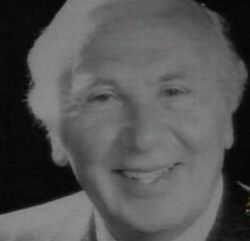|
Nizar Qabbani Qabbani was born in Damascus on March 21, 1923. He began writing poetry in 1944, just one year before he earned a law degree from the University of Damascus and joined the diplomatic cadre in the Syrian Ministry of Foreign Affairs. He held diplomatic posts in Cairo, London, Madrid, Beijing and Beirut; however, in 1966, he resigned from the diplomatic service and turned to poetry, his greater love. The setback resulting from the 1967 war with Israel shaped Qabbani's political works and the death of his wife, Balkees, his love poetry. He was a devoted Arab nationalist, a great supporter of the Arab causes and a thorough critic of the Arab regimes and leaders; he often provoked fierce debates with his poems. On the other hand, Qabbani was called 'the Woman's Poet'. Probably, he wrote the best love words and poems one could find in the modern Arabic literature; his sentences were touching, sensitive, meaningful and powerful. He strongly supported the women's right and defended them against the injustice and unfairness they encounter in the Arab world. Qabbani wrote more than two dozen books of poems (political and love), many of which were incorporated into lyrics by famous Arab singers, including Fairouz, Oum Kalthoum ("Now I have a Gun"- Asba7a 3endi Allana Bunduqiyah), Abdul Halim Hafez ("Reader of the Cup"- Kari'at Al Founjan…), Najat Al Saghira ("He thinks?"- A Yathouno)… Although Syrian by birth, Qabbani was Lebanese in his heart. He lived a considerable part of his life in Beirut, his 'Lady of Universe'. To Beirut, Qabbani devoted many of his words; he charged the Arabs that they collectively conspired to destroy Beirut out of their envy of its beauty. He was forced to leave the city he had a special strong passion for, because of the furious incidents of the Civil War, to London where he lived until he died on April 30, 1998. Majida was the first singer from the 'new generation' to present a poem written by Qabbani. In her attempt to start a new wave in the Arabic singing, Majida chose some poems (in written Arabic language) from Qabbani's works; she opened the way and several others followed her track. In the early 1990s, Majida presented 'Beirut, Lady of Universe' (Beirut Sit El Dunia), a masterpiece which Qabbani was so proud of and even named it the 'Arab Marseliese' (similar to the French National Anthem). Qabbani was even more surprised with the tremendous success of Majida's hit "Words" (Kalimat), especially since he had certain reservations on that piece. Other than that, Majida presented the following songs written by Qabbani: "With the Newspaper" (Ma3 Jarida) and "the Jasmine Neckband" (Tawq Al Yasamin). |


|
|


